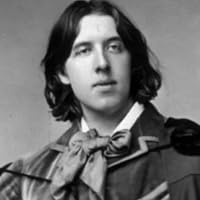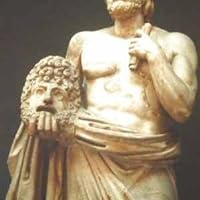Greeks Quotes
Quotes tagged as "greeks"
Showing 1-30 of 59

“The Jews are a peculiar people: Things permitted to other nations are forbidden to the Jews.
Other nations drive out thousands, even millions of people, and there is no refugee problem. Russia did it. Poland and Czechoslovakia did it. Turkey threw out a million Greeks and Algeria a million Frenchmen. Indonesia threw out heaven knows how many Chinese--and no one says a word about refugees.
But in the case of Israel, the displaced Arabs have become eternal refugees. Everyone insists that Israel must take back every single Arab. Arnold Toynbee calls the displacement of the Arabs an atrocity greater than any committed by the Nazis. Other nations when victorious on the battlefield dictate peace terms. But when Israel is victorious it must sue for peace.
Everyone expects the Jews to be the only real Christians in this world.”
―
Other nations drive out thousands, even millions of people, and there is no refugee problem. Russia did it. Poland and Czechoslovakia did it. Turkey threw out a million Greeks and Algeria a million Frenchmen. Indonesia threw out heaven knows how many Chinese--and no one says a word about refugees.
But in the case of Israel, the displaced Arabs have become eternal refugees. Everyone insists that Israel must take back every single Arab. Arnold Toynbee calls the displacement of the Arabs an atrocity greater than any committed by the Nazis. Other nations when victorious on the battlefield dictate peace terms. But when Israel is victorious it must sue for peace.
Everyone expects the Jews to be the only real Christians in this world.”
―

“To be really mediæval one should have no body. To be really modern one should have no soul. To be really Greek one should have no clothes.”
― Complete Works of Oscar Wilde
― Complete Works of Oscar Wilde

“I know you have not thought about it. Italians always act without thinking, it's the glory and the downfall of your civilisation. A German plans a month in advance what his bowel movements will be at Easter, and the British plan everything in retrospect, so it always looks as though everything occurred as they intended. The French plan everything whilst appearing to be having a party, and the Spanish...well, God knows. Anyway, Pelagia is Greek, that's my point.”
― Corelli’s Mandolin
― Corelli’s Mandolin

“...Turn our thoughts, in the next place, to the characters of learned men. The priesthood have, in all ancient nations, nearly monopolized learning. Read over again all the accounts we have of Hindoos, Chaldeans, Persians, Greeks, Romans, Celts, Teutons, we shall find that priests had all the knowledge, and really governed all mankind. Examine Mahometanism, trace Christianity from its first promulgation; knowledge has been almost exclusively confined to the clergy. And, even since the Reformation, when or where has existed a Protestant or dissenting sect who would tolerate a free inquiry? The blackest billingsgate, the most ungentlemanly insolence, the most yahooish brutality is patiently endured, countenanced, propagated, and applauded. But touch a solemn truth in collision with a dogma of a sect, though capable of the clearest proof, and you will soon find you have disturbed a nest, and the hornets will swarm about your legs and hands, and fly into your face and eyes.
[Letters to John Taylor, 1814, XVIII, p. 484]”
― The Letters of John and Abigail Adams
[Letters to John Taylor, 1814, XVIII, p. 484]”
― The Letters of John and Abigail Adams

“In his youth, he was electrified. The stars were moving in his bloodstream. He would not have been cowed by the customs of an earthly monarch. When he loved, it was with a heat and a desperation that he carried like a sword. He loved in the way that Greeks burned cities.”
―
―

“Every Greek, man, woman, and child, has to two Greeks inside. We even have technical terms for them. They are a part of us, as inevitable as the fact that we all write poetry and the fact that every single one of us thinks that he knows everything that there is to know. We are all hospitable to strangers, we all are nostalgic for something, our mothers all treat their grown sons like babies, our sons all treat their mothers a sacred and beat their wives, we all hate solitude, we all try to find out from a stranger whether or not we are related, we all use every long word we know as often as we possibly can, we all go out for a walk in the evening so that we can look over each others' fences, we all think that we are equal to the best. Do you understand?"
The captain was perplexed, "You didn't tell me about the two Greeks inside every Greek."
"I didn't? Well, I must have wandered off the point.”
― Corelli’s Mandolin
The captain was perplexed, "You didn't tell me about the two Greeks inside every Greek."
"I didn't? Well, I must have wandered off the point.”
― Corelli’s Mandolin
“To Judaism Christians ascribe the glory of having been the first religion to teach a pure monotheism. But monotheism existed long before the Jews attained to it. Zoroaster and his earliest followers were monotheists, dualism being a later development of the Persian theology. The adoption of monotheism by the Jews, which occurred only at a very late period in their history, was not, however, the result of a divine revelation, or even of an intellectual superiority, for the Jews were immeasurably inferior intellectually to the Greeks and Romans, to the Hindus and Egyptians, and to the Assyrians and Babylonians, who are supposed to have retained a belief in polytheism. This monotheism of the Jews has chiefly the result of a religious intolerance never before equaled and never since surpassed, except in the history of Christianity and Mohammedanism, the daughters of Judaism. Jehovistic priests and kings tolerated no rivals of their god and made death the penalty for disloyalty to him. The Jewish nation became monotheistic for the same reason that Spain, in the clutches of the Inquisition, became entirely Christian.”
― The Christ
― The Christ

“Things don't always look as they seem. Some stars, for example, look like bright pinholes, but when you get them pegged under a microscope you find you're looking at a globular cluster—a million stars that, to us, presents as a single entity. On a less dramatic note there are triples, like Alpha Centauri, which up close turns out to be a double star and a red dwarf in close proximity.
There's an indigenous tribe in Africa that tells of life coming from the second star in Alpha Centauri, the one no one can see without a high-powered observatory telescope. come to think of it, the Greeks, the Aboriginals, and the Plains Indians all lived continents apart and all, independently, looked at the same septuplet knot of the Pleiades and believed them to be seven young girls running away from something that threatened to hurt them.
Make of it what you will.”
― My Sister’s Keeper
There's an indigenous tribe in Africa that tells of life coming from the second star in Alpha Centauri, the one no one can see without a high-powered observatory telescope. come to think of it, the Greeks, the Aboriginals, and the Plains Indians all lived continents apart and all, independently, looked at the same septuplet knot of the Pleiades and believed them to be seven young girls running away from something that threatened to hurt them.
Make of it what you will.”
― My Sister’s Keeper

“Who ever desires what is not gone? No one. The Greeks were clear on this. They invented eros to express it.”
― Eros the Bittersweet
― Eros the Bittersweet

“If any dude asked Annabeth for a drink, Jason figured she was more likely to kick the guy in the bifurcum”
― The Blood of Olympus
― The Blood of Olympus

“[D]idn't Aristarchus and the Pythagoreans propose heliocentrism in ancient times? If only they had prevailed, we might have had Real Science millennia sooner. What was their evidence?
Well, you see, fire is nobler than earth and the center is a nobler position. So fire has to be in the center. QED.
There are many names for this sort of thinking, but "scientific" is not one of them.”
―
Well, you see, fire is nobler than earth and the center is a nobler position. So fire has to be in the center. QED.
There are many names for this sort of thinking, but "scientific" is not one of them.”
―
“Beauty is a sacrifice. -Me
Baby, I INVENTED scrawny! -Leo Valdez
I will NEVER leave you or forsake you. -God
No one can make you feel inferior, unless you consent. -Eleanor Roosevelt
Be careful, Seaweed Brain. -Annabeth Chase”
―
Baby, I INVENTED scrawny! -Leo Valdez
I will NEVER leave you or forsake you. -God
No one can make you feel inferior, unless you consent. -Eleanor Roosevelt
Be careful, Seaweed Brain. -Annabeth Chase”
―

“Medeia — (...) Dizem de nós que vivemos uma existência sem perigos, dentro de casa, ao passo que eles combatem com a lança. Pobre raciocínio! Antes queria lutar três vezes debaixo do broquel que dar à luz uma única vez.”
― Medea
― Medea

“Δεν υπάρχει Ελένη! Δεν υπάρχει Ελένη!" μα εμείς οι Έλληνες, βαθιά νιώθουμε: Ελένη θα πει να πολεμάς για την Ελένη!”
― Journeying: Travels in Italy, Egypt, Sinai, Jerusalem and Cyprus
― Journeying: Travels in Italy, Egypt, Sinai, Jerusalem and Cyprus

“So don’t misunderstand me, it isn’t that I think the Old Greeks are worse than the Turks, what irritates me is that they think they’re so much better when really they’re exactly the same. God made them Cain and Abel, and whichever one happens to have the upper hand takes his turn as Cain. Whoever is unfortunate enough to be playing the role of Abel seizes the opportunity to bemoan the barbarism of the other. If I ever get to meet God In Person I shall suggest quite forcefully that He impartially abolish their religions, and then they will be friends for ever.”
― Birds Without Wings
― Birds Without Wings
“The Greeks produced lively portraits and the aesthetes living ones, but perhaps we will be the first generation to wholly abandon the portrait in favor of life itself.”
―
―

“Apollo was the god of so many different things, even the Greeks got confused. They'd be like, "Hmm, I forgot who the god of basket weaving is. Must be Apollo!”
― Percy Jackson's Greek Gods
― Percy Jackson's Greek Gods

“Ancient people, like the Greeks, had a deep fascination with numbers. Could it be that in difficult times numbers were the only constant thing in an ever shifting world? To the Pythagoreans, an ancient Greek sect, numbers were tangible, immutable, comfortable, eternal, more reliable than friends, less threatening than Apollo and Zeus.”
― The Math Book: From Pythagoras to the 57th Dimension, 250 Milestones in the History of Mathematics
― The Math Book: From Pythagoras to the 57th Dimension, 250 Milestones in the History of Mathematics
“In his thoughtful essay Did the Greeks Believe in their Myths? the classicist Paul Veyne remarks that in classical antiquity belief-like assertions were social assertions that interlocutors did not take to refer to the everyday world in the same way that later Europeans would assume that they did. ’The Greeks believe and do not believe their myths. They believe in them, but they use them and cease believing at the point where their interest in believing ends’ (1988:84). All humans, he writes, hold contradictory commitments. These different commitments are managed with what he calls different ‘truth programs’: different sets of ideas, practices, and interests that belong together in some social world and are held with a particular attitude. ’A Greek put the gods ”in heaven,” but he would have been astounded to see them in the sky. He would have been no less astounded if someone, using time in its literal sense, told him that Hephaestus had just remarried or that Athena had aged a great deal lately’ (1988:18).”
―
―

“The high brain capacity of the Cro-Magnons is paralleled by that of the ancient Greeks, who in a single century gave to the world out of their small population much more genius than all the other races of mankind have since succeeded in producing in a similar length of time.”
― The Passing of the Great Race or the Racial Basis of European History
― The Passing of the Great Race or the Racial Basis of European History

“Rome had been weary of poets and philosophers. It had been a city based on virtue and action, not of flowery words, intellectual speculation and books. But even Rome legion slowly established military dominance over Greece, Greek culture just as steadily began to colonize the minds of the conquerors. Skeptical as ever, of a feat intellectuals, and priding themselves on their practical intelligence, Romans nontheless acknowledges with great enthusiasm of Greek philosophers, scientists, writers and artists. They made fun of what they took to be the defects of Greek character, mocking what they saw as it's loquaciousness, it's taste for philosophizing and it's fopishness.”
― The Swerve: How the World Became Modern
― The Swerve: How the World Became Modern

“It is no accident that Athens was the home not only of Socrates, Plato, and Aristotle, but also of Aeschylus, Sophocles, and Euripides. Their approach to the question of what makes a human life worth living created not only the conditions for the great tragic dramatists but also the audiences for them. Those audiences did not shrink from confronting the possibility that human life, tragically, is not worth living. Perhaps we don't matter and nothing can be done to make us matter. Or, only slightly less tragic, perhaps there is something that will redeem that life by singling it out as extraordinary, and only then it will matter. It is only an ordinary life--with nothing to distinguish it from the great masses of other anonymous lives that have come before us and will come after us--that doesn't matter. There is a profound pitilessness in this proposition and there was a pronounced pitilessness in the ancient Greeks. One must exert oneself in order to achieve a life that matters. If you don't exert yourself, or if your exertion does not amount to much of anything, then you might as well not have bothered to have shown up for your existence at all.”
― Plato at the Googleplex: Why Philosophy Won't Go Away
― Plato at the Googleplex: Why Philosophy Won't Go Away

“You talk this game about what the ancient Greeks did, ghosts in the gullet, and all that. Hucksterism, sure. I can appreciate a good scam. But to the people who came to see it—to see us—it was holy.”
― The Road to Vent Haven
― The Road to Vent Haven

“In fact religion or what was understood by that word at the time, was incorporated indissolubly in the body of social institutions, in which recognition of the "gods of the city" and observance of the lawfully established forms of worship played a fundamental part, providing them with a guarantee of stability; and it was this that conferred on these institutions a genuinely traditional character. Since those times however, at any rate during the classical period, men ceased to be fully aware of the principle on which their tradition should have been based intellectually; in this may be seen one of the earliest manifestations of the metaphysical incapacity common amount Westerners, a deficiency that brings a strange confusion of thought as its fatal and unquestionable consequence. Among the Greeks especially, rites and symbols inherited from more ancient and already forgotten traditions rapidly lost their original and exact meaning; the imagination of that predominantly artistic people, freely expressing itself through the individual fancies of its poets, covered those symbols with an almost impenetrable veil, and that is the reason why philosophers like Plato openly declared that they did not know how to interpret the most ancient writings they possessed concerning the nature of the gods. Symbols thus degenerated into mere allegories, and through the workings of an invincible tendency towards anthropomorphic personification they turned into "myths," that is to say fables about which every could believe what he pleased, provided he continued in practice to maintain the conventional attitude prescribed by the legal ordinances.”
― Introduction to the Study of the Hindu Doctrines
― Introduction to the Study of the Hindu Doctrines

“The ancient Greeks devised a term that accurately represented every inexplicable feeling that tormented humanity. Hoping that each word carried some relief within its letters. As if somehow a vague definition of such an intricate concept will fix the feeling of emptiness that follows its experience. But there was a word that the Greeks had not thought of: one that could define the smell of death. Evidently, there were a myriad of adjectives that could define this morbid aroma, yet I wondered if there were any words that could truly capture the revolting feeling that this smell evoked. It was an absolutely gut-wrenching sensation, and it vexed me so much that I couldn't pinpoint it to a single, distinct element of speech.
Fuck the Greeks.”
― Cabin Fever
Fuck the Greeks.”
― Cabin Fever
All Quotes
|
My Quotes
|
Add A Quote
Browse By Tag
- Love Quotes 97k
- Life Quotes 75.5k
- Inspirational Quotes 72.5k
- Humor Quotes 43.5k
- Philosophy Quotes 29.5k
- Inspirational Quotes Quotes 27k
- God Quotes 26k
- Truth Quotes 23.5k
- Wisdom Quotes 23.5k
- Romance Quotes 23k
- Poetry Quotes 22k
- Death Quotes 20k
- Happiness Quotes 18.5k
- Life Lessons Quotes 18.5k
- Hope Quotes 18k
- Faith Quotes 18k
- Quotes Quotes 16.5k
- Inspiration Quotes 16.5k
- Spirituality Quotes 15k
- Religion Quotes 15k
- Motivational Quotes 15k
- Writing Quotes 14.5k
- Relationships Quotes 14.5k
- Life Quotes Quotes 14k
- Love Quotes Quotes 13.5k
- Success Quotes 13.5k
- Time Quotes 12.5k
- Motivation Quotes 12k
- Science Quotes 11.5k
- Knowledge Quotes 11k


